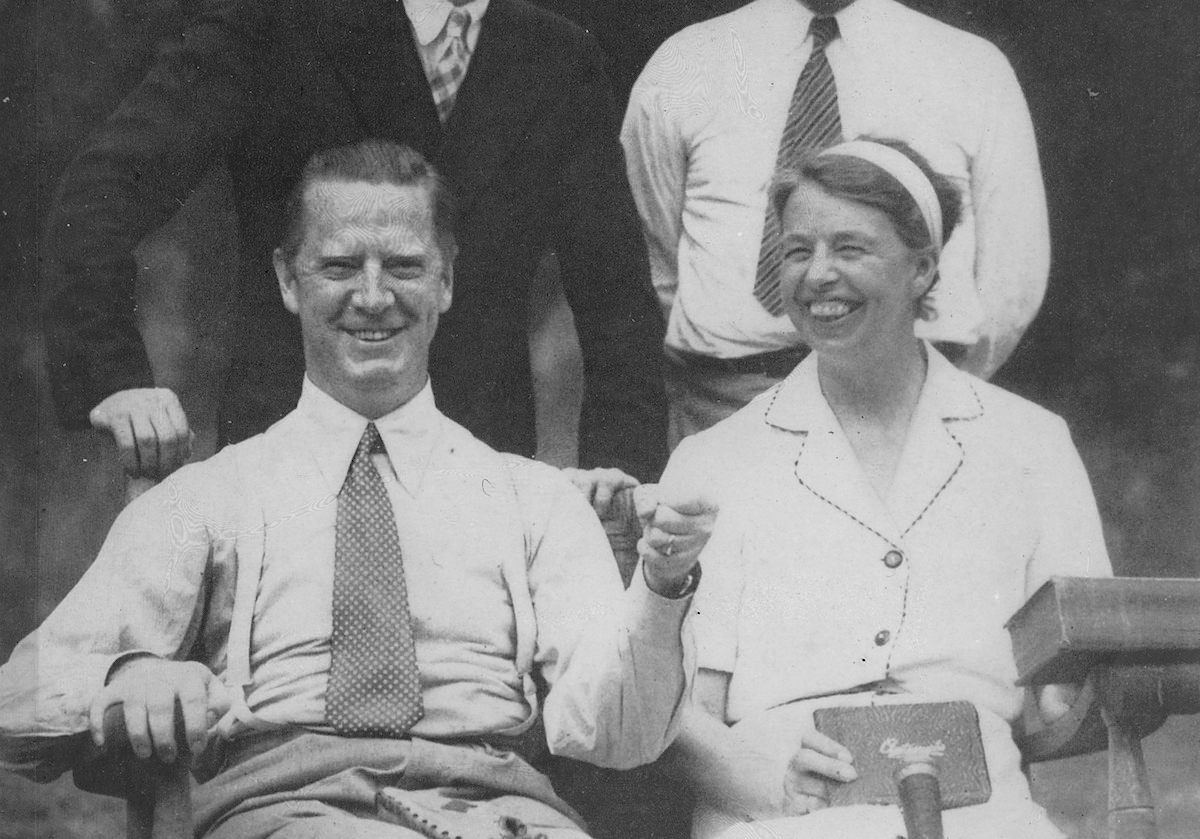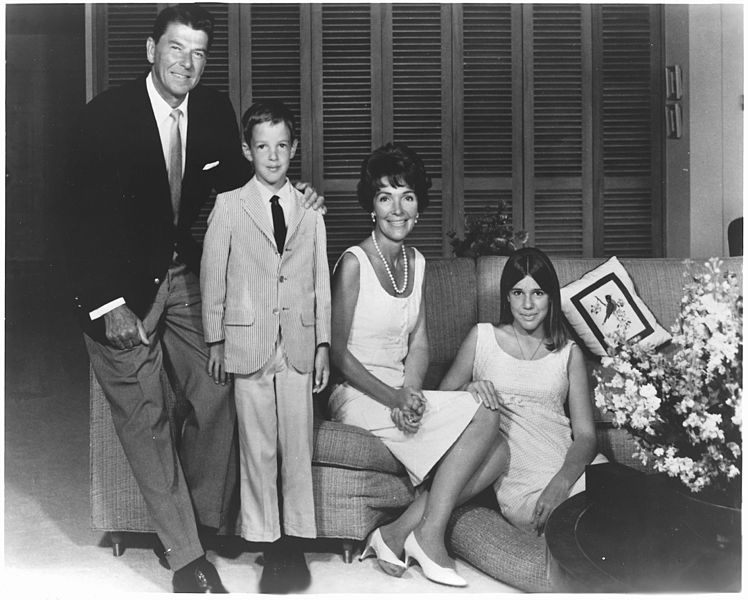The True Origins of the Phrase ‘Bleeding-Heart Liberal’
Thank Westbrook Pegler, Joe McCarthy, and Ronald Reagan.

Westbrook Pegler was extremely good at calling people names. Particularly politicians. In his syndicated newspaper column, he called Franklin D. Roosevelt “Moosejaw” and “momma’s boy.” Truman was “a thin-lipped hater.”
Pegler was a bit of hater himself. He didn’t like the labor movement, Communists, fascists, Jews, and perhaps most of all, liberals. In one 1938 column, he coined a term for liberals that would eventually come to define conservative scorn for the left. Pegler was the first writer to refer to liberals as “bleeding hearts.” The context for this then-novel insult? A bill before Congress that aimed to curb lynching.
Before the 20th century, the phrase “bleeding heart” was popular in the religious-tinged oratory of 19th century America. Throughout the 1860s, it comes up often in poetry, essays, and political speeches, as an expression of empathy and emotion. “I come to you with a bleeding heart, honest and sincere motives, desiring to give you some plain thoughts,” said one politician in an 1862 speech. The phrase comes from the religious image of Christ’s wounded heart, which symbolizes his compassion and love. It was a common enough phrase that London has a “Bleeding Heart Yard” (featured prominently in the Dickens novel Little Dorrit) which is named after a long-gone sign, once displayed at a local pub, that showed the Sacred Heart.

By the 1930s, though, the phrase had fallen out of common use and Pegler, who one politician called a “soul-sick, mud-wallowing gutter scum columnist,” recruited it into a new context, as a political insult. He was a master of this art. As a contemporary of his wrote in an academic article on political name-calling, “Pegler has coined, or given prominence to, a fair share of unfair words.” (Pegler also called the AFL a “swollen national racket,” economics “a side-show science,” and Harold Ickes, who ran the Public Works Administration, “Donald Duck.”)
Pegler first used “bleeding heart” in a column castigating liberals in Washington for their focus on “a bill to provide penalties for lynchings.” Pegler wasn’t for lynchings, per se, but he argued that they were no longer a problem the federal government should solve: there had only been eight lynchings in 1937, he wrote, and “it is obvious that the evil is being cured by local processes.” The bill, he thought, was being “used as a political bait in crowded northern Negro centers.” And here was his conclusion, emphasis ours:
“I question the humanitarianism of any professional or semi-pro bleeding heart who clamors that not a single person must be allowed to hunger but would stall the entire legislative program in a fight to ham through a law intended, at the most optimistic figure, to save fourteen lives a year.”
Pegler was apparently pleased enough with this use of “bleeding heart” that he kept it up. He later wrote of “professional bleeding hearts” who advocated for “collective medicine” after a woman couldn’t find a doctor to help her through labor, and lobbed the insult of “bleeding heart Bourn” at a rival, left-leaning columnist. By 1940, he had condensed the phrase down to “bleeding-heart humanitarians” and “bleeding-heart liberals.”
Pegler’s usage did not immediately catch on, though. (Perhaps that’s because he went on to become so right-wing that he was asked to leave the John Birch Society.) If the New York Times’ archives is any indication, through the ‘40s and ‘50s, “bleeding heart” was most often used to refer to the flower Lamprocapnos spectabilis, which grows rows of pretty pink blossoms, and occasionally sports.

“Bleeding heart” was revived in a political context in 1954, by another infamous right-winger, Joe McCarthy, who called Edward R. Murrow one of the “extreme Left Wing bleeding-heart elements of television and radio.” It wasn’t until the 1960s that it really started to come into common use, though. In 1963, the satirical columnist Russell Baker put it on a list of political insults: “If one is called a ‘phoney,’ about the only thing he can do is come back with some epithet like, ‘anti-intellectual’ or ‘bleeding-heart liberal’…or ‘you must be one of those peace nuts.’” By the end of the decade, Ronald Reagan, then newly elected governor of California, had picked it up as a way to describe his political trajectory. “I was quite the bleeding-heart liberal once,” he told Newsweek. By 1970, he was known as a “former ‘bleeding heart’ Democrat.”
After that, the phrase was fully ensconced in political short-hand and quickly claimed by liberals as a positive trait. “You are called a bleeding heart liberal because you have a heart for the poor,” one told the Times. “Count me with the bleeding heart liberals,” an NAACP lawyer wrote in a letter to the editor.









Follow us on Twitter to get the latest on the world's hidden wonders.
Like us on Facebook to get the latest on the world's hidden wonders.
Follow us on Twitter Like us on Facebook